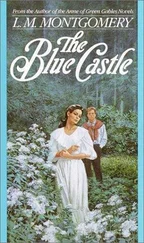Lucy Montgomery - The Golden Road
Здесь есть возможность читать онлайн «Lucy Montgomery - The Golden Road» весь текст электронной книги совершенно бесплатно (целиком полную версию без сокращений). В некоторых случаях можно слушать аудио, скачать через торрент в формате fb2 и присутствует краткое содержание. Жанр: Детская проза, на английском языке. Описание произведения, (предисловие) а так же отзывы посетителей доступны на портале библиотеки ЛибКат.
- Название:The Golden Road
- Автор:
- Жанр:
- Год:неизвестен
- ISBN:нет данных
- Рейтинг книги:4 / 5. Голосов: 1
-
Избранное:Добавить в избранное
- Отзывы:
-
Ваша оценка:
- 80
- 1
- 2
- 3
- 4
- 5
The Golden Road: краткое содержание, описание и аннотация
Предлагаем к чтению аннотацию, описание, краткое содержание или предисловие (зависит от того, что написал сам автор книги «The Golden Road»). Если вы не нашли необходимую информацию о книге — напишите в комментариях, мы постараемся отыскать её.
The Golden Road — читать онлайн бесплатно полную книгу (весь текст) целиком
Ниже представлен текст книги, разбитый по страницам. Система сохранения места последней прочитанной страницы, позволяет с удобством читать онлайн бесплатно книгу «The Golden Road», без необходимости каждый раз заново искать на чём Вы остановились. Поставьте закладку, и сможете в любой момент перейти на страницу, на которой закончили чтение.
Интервал:
Закладка:
This particular evening was particularly beautiful. It was cool after a hot day, and wheat fields all about us were ripening to their harvestry. The wind gossiped with the grasses along our way, and over them the buttercups danced, goldenly-glad. Waves of sinuous shadow went over the ripe hayfields, and plundering bees sang a freebooting lilt in wayside gardens.
"The world is so lovely tonight," said the Story Girl. "I just hate the thought of going into the church and shutting all the sunlight and music outside. I wish we could have the service outside in summer."
"I don't think that would be very religious," said Felicity.
"I'd feel ever so much more religious outside than in," retorted the Story Girl.
"If the service was outside we'd have to sit in the graveyard and that wouldn't be very cheerful," said Felix.
"Besides, the music isn't shut out," added Felicity. "The choir is inside."
"'Music has charms to soothe a savage breast,'" quoted Peter, who was getting into the habit of adorning his conversation with similar gems. "That's in one of Shakespeare's plays. I'm reading them now, since I got through with the Bible. They're great."
"I don't see when you get time to read them," said Felicity.
"Oh, I read them Sunday afternoons when I'm home."
"I don't believe they're fit to read on Sundays," exclaimed Felicity. "Mother says Valeria Montague's stories ain't."
"But Shakespeare's different from Valeria," protested Peter.
"I don't see in what way. He wrote a lot of things that weren't true, just like Valeria, and he wrote swear words too. Valeria never does that. Her characters all talk in a very refined fashion."
"Well, I always skip the swear words," said Peter. "And Mr. Marwood said once that the Bible and Shakespeare would furnish any library well. So you see he put them together, but I'm sure that he would never say that the Bible and Valeria would make a library."
"Well, all I know is, I shall never read Shakespeare on Sunday," said Felicity loftily.
"I wonder what kind of a preacher young Mr. Davidson is," speculated Cecily.
"Well, we'll know when we hear him tonight," said the Story Girl. "He ought to be good, for his uncle before him was a fine preacher, though a very absent-minded man. But Uncle Roger says the supply in Mr. Marwood's vacation never amounts to much. I know an awfully funny story about old Mr. Davidson. He used to be the minister in Baywater, you know, and he had a large family and his children were very mischievous. One day his wife was ironing and she ironed a great big nightcap with a frill round it. One of the children took it when she wasn't looking and hid it in his father's best beaver hat—the one he wore on Sundays. When Mr. Davidson went to church next Sunday he put the hat on without ever looking into the crown. He walked to church in a brown study and at the door he took off his hat. The nightcap just slipped down on his head, as if it had been put on, and the frill stood out around his face and the string hung down his back. But he never noticed it, because his thoughts were far away, and he walked up the church aisle and into the pulpit, like that. One of his elders had to tiptoe up and tell him what he had on his head. He plucked it off in a dazed fashion, held it up, and looked at it. 'Bless me, it is Sally's nightcap!' he exclaimed mildly. 'I do not know how I could have got it on.' Then he just stuffed it into his pocket calmly and went on with the service, and the long strings of the nightcap hung down out of his pocket all the time."
"It seems to me," said Peter, amid the laughter with which we greeted the tale, "that a funny story is funnier when it is about a minister than it is about any other man. I wonder why."
"Sometimes I don't think it is right to tell funny stories about ministers," said Felicity. "It certainly isn't respectful."
"A good story is a good story—no matter who it's about," said the Story Girl with ungrammatical relish.
There was as yet no one in the church when we reached it, so we took our accustomed ramble through the graveyard surrounding it. The Story Girl had brought flowers for her mother's grave as usual, and while she arranged them on it the rest of us read for the hundredth time the epitaph on Great-Grandfather King's tombstone, which had been composed by Great-Grandmother King. That epitaph was quite famous among the little family traditions that entwine every household with mingled mirth and sorrow, smiles and tears. It had a perennial fascination for us and we read it over every Sunday. Cut deeply in the upright slab of red Island sandstone, the epitaph ran as follows:—
SWEET DEPARTED SPIRIT
Do receive the vows a grateful widow pays,
Each future day and night shall hear her speak her Isaac's praise.
Though thy beloved form must in the grave decay
Yet from her heart thy memory no time, no change shall steal away.
Do thou from mansions of eternal bliss
Remember thy distressed relict.
Look on her with an angel's love—
Soothe her sad life and cheer her end
Through this world's dangers and its griefs.
Then meet her with thy well-known smiles and welcome
At the last great day.
"Well, I can't make out what the old lady was driving at," said Dan.
"That's a nice way to speak of your great-grandmother," said Felicity severely.
"How does The Family Guide say you ought to speak of your great-grandma, sweet one?" asked Dan.
"There is one thing about it that puzzles me," remarked Cecily. "She calls herself a GRATEFUL widow. Now, what was she grateful for?"
"Because she was rid of him at last," said graceless Dan.
"Oh, it couldn't have been that," protested Cecily seriously. "I've always heard that Great-Grandfather and Great-Grandmother were very much attached to each other."
"Maybe, then, it means she was grateful that she'd had him as long as she did," suggested Peter.
"She was grateful to him because he had been so kind to her in life, I think," said Felicity.
"What is a 'distressed relict'?" asked Felix.
"'Relict' is a word I hate," said the Story Girl. "It sounds so much like relic. Relict means just the same as widow, only a man can be a relict, too."
"Great-Grandmother seemed to run short of rhymes at the last of the epitaph," commented Dan.
"Finding rhymes isn't as easy as you might think," avowed Peter, out of his own experience.
"I think Grandmother King intended the last of the epitaph to be in blank verse," said Felicity with dignity.
There was still only a sprinkling of people in the church when we went in and took our places in the old-fashioned, square King pew. We had just got comfortably settled when Felicity said in an agitated whisper, "Here is Peg Bowen!"
We all stared at Peg, who was pacing composedly up the aisle. We might be excused for so doing, for seldom were the decorous aisles of Carlisle church invaded by such a figure. Peg was dressed in her usual short drugget skirt, rather worn and frayed around the bottom, and a waist of brilliant turkey red calico. She wore no hat, and her grizzled black hair streamed in elf locks over her shoulders. Face, arms and feet were bare—and face, arms and feet were liberally powdered with FLOUR. Certainly no one who saw Peg that night could ever forget the apparition.
Peg's black eyes, in which shone a more than usually wild and fitful light, roved scrutinizingly over the church, then settled on our pew.
"She's coming here," whispered Felicity in horror. "Can't we spread out and make her think the pew is full?"
But the manoeuvre was too late. The only result was that Felicity and the Story Girl in moving over left a vacant space between them and Peg promptly plumped down in it.
"Well, I'm here," she remarked aloud. "I did say once I'd never darken the door of Carlisle church again, but what that boy there"—nodding at Peter—"said last winter set me thinking, and I concluded maybe I'd better come once in a while, to be on the safe side."
Читать дальшеИнтервал:
Закладка:
Похожие книги на «The Golden Road»
Представляем Вашему вниманию похожие книги на «The Golden Road» списком для выбора. Мы отобрали схожую по названию и смыслу литературу в надежде предоставить читателям больше вариантов отыскать новые, интересные, ещё непрочитанные произведения.
Обсуждение, отзывы о книге «The Golden Road» и просто собственные мнения читателей. Оставьте ваши комментарии, напишите, что Вы думаете о произведении, его смысле или главных героях. Укажите что конкретно понравилось, а что нет, и почему Вы так считаете.





